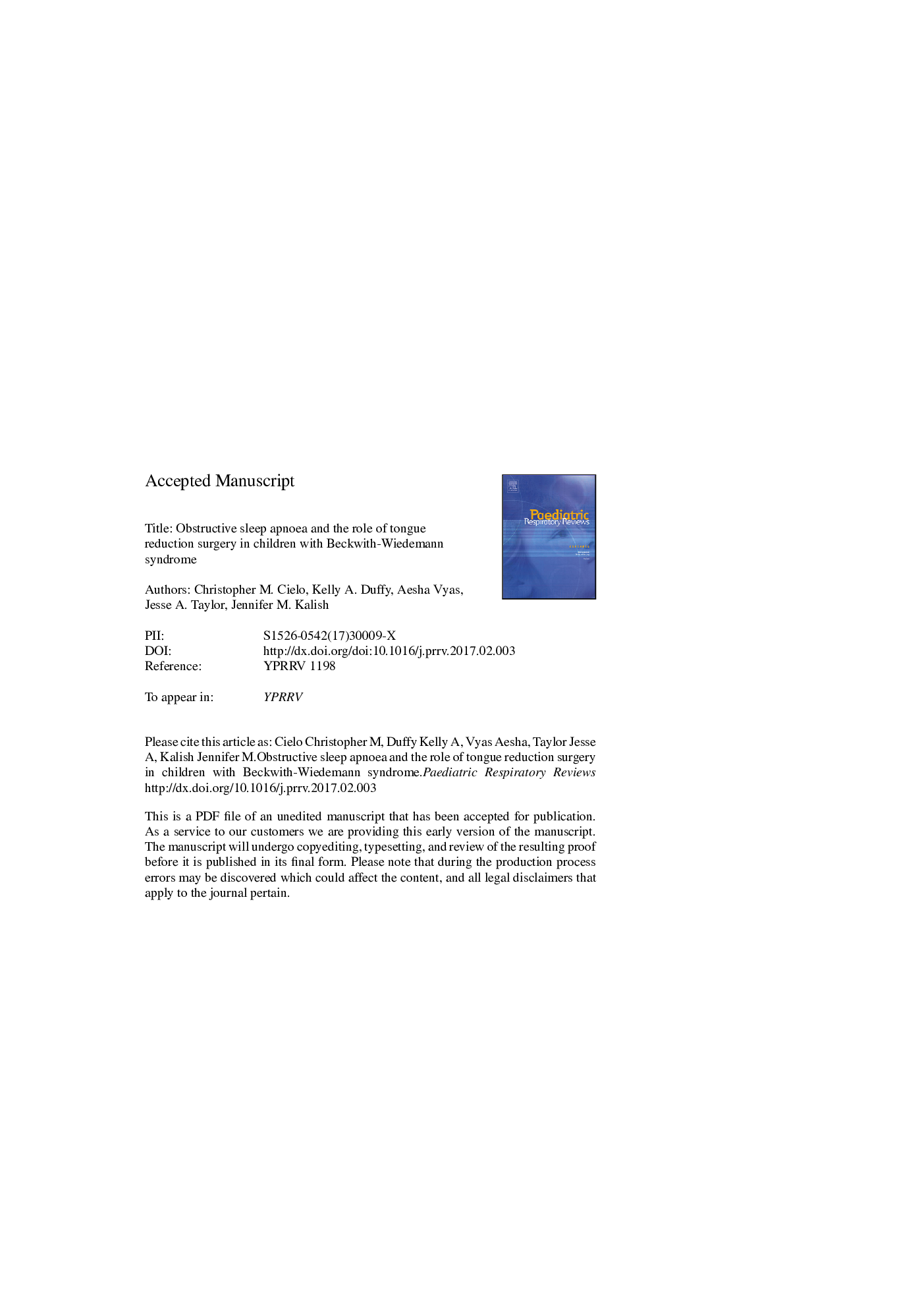| Article ID | Journal | Published Year | Pages | File Type |
|---|---|---|---|---|
| 8813040 | Paediatric Respiratory Reviews | 2018 | 16 Pages |
Abstract
Beckwith-Wiedemann syndrome (BWS) is a rare paediatric overgrowth disorder. Associated macroglossia is a feature of many children with BWS and is felt to be a risk factor for obstructive sleep apnoea (OSA). Sleep-disordered breathing is highly variable in this population. The relationship between degree of macroglossia or other genotypic or phenotypic factors and OSA severity has not been established. The natural history of OSA in this population is unknown; a variety of conservative and surgical therapies have been used to treat OSA in children with BWS but none have been studied systematically. Tongue reduction is the mainstay of surgical therapy for macroglossia associated with BWS, but limited data are available regarding its efficacy in treating OSA or its effect on speech and swallowing. More research is needed to better identify which children with BWS are at risk for OSA and the most effective treatment for these patients.
Related Topics
Health Sciences
Medicine and Dentistry
Perinatology, Pediatrics and Child Health
Authors
Christopher M. Cielo, Kelly A. Duffy, Aesha Vyas, Jesse A. Taylor, Jennifer M. Kalish,
